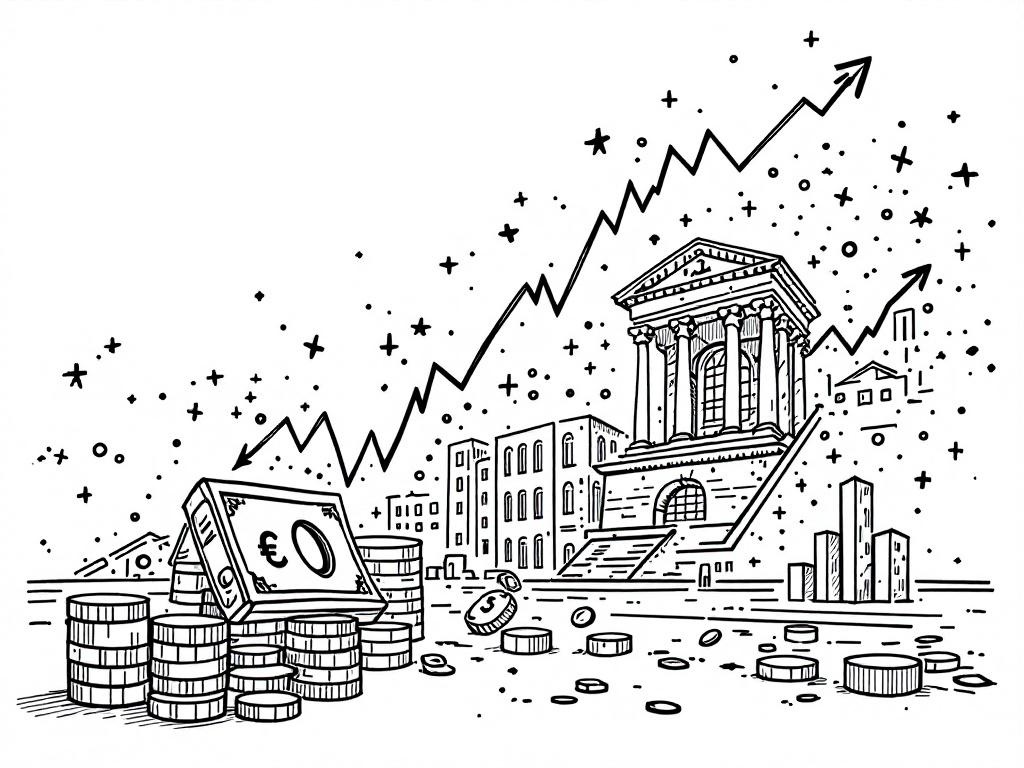Euro Zone Inflation Sparks Market Volatility

London, Tuesday, 2 September 2025.
European markets opened lower as euro zone inflation data came in higher than expected at 2.1%, challenging economic forecasts and impacting global market sentiments.
Inflation Data and Market Reaction
On September 2, 2025, European markets opened lower following the release of euro zone inflation data, which showed a rise to 2.1% in August, surpassing economists’ expectations of a stable rate at 2% [1][2]. This higher-than-anticipated inflation rate has exerted pressure on European stock indices, with the Stoxx Europe 600 falling by 0.6% [1]. Such inflationary pressures have stoked concerns among investors about the potential for tighter monetary policy from the European Central Bank (ECB) and their subsequent impact on economic growth.
Impact of Inflation on Monetary Policy
Despite the uptick in inflation, the ECB is expected to maintain its key interest rate at 2% during its upcoming meeting, according to a Reuters survey of economists [2]. This decision aligns with the central bank’s cautious approach, as it monitors economic recovery amidst easing trade uncertainties following the recent EU-U.S. trade deal [2]. However, the persistence of core inflation at 2.3% could lead to divergent views within the ECB on the appropriate monetary policy response [3].
Broader Economic Implications
The inflation data’s broader implications extend beyond Europe, as global markets remain sensitive to economic signals from major economies. The interconnectedness of the global economy is evident, with potential impacts on U.S. markets and currency exchanges. For instance, the euro’s decline by 0.6% against the dollar reflects investor concerns over the euro zone’s economic trajectory [2]. Additionally, the British pound’s slide against the U.S. dollar underscores the vulnerabilities faced by European currencies amid fiscal uncertainties [1].
Looking Ahead
As markets digest these developments, attention will turn to the ECB’s next steps and the potential for policy adjustments in response to evolving economic conditions. Analysts predict that the ECB will keep interest rates unchanged for some time, allowing for a cautious assessment of growth dynamics and inflationary pressures [2]. Investors will also be closely watching forthcoming economic data and geopolitical developments that could influence market trends in the coming months.